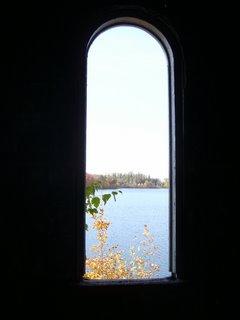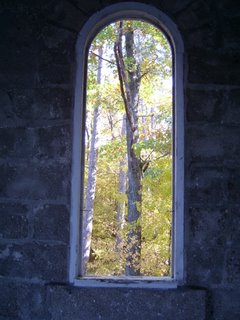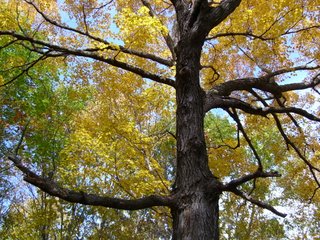Living in Two Different Worlds

Our weekend in Madison, Wisconsin, reminded me of just how different the world is that I'm inhabiting here at St. John's this fall. Not only was the world of commerce in full force, but something called "Freakfest" was the drawing card for some additional half-million folks to downtown Madison Saturday night. The first few guys I saw on the street corner I thought were throwbacks to the sixties--complete with their full afros. But it turns out that they were only wearing wigs and were mild samples of what were to follow. Heavy Goth figures, macabre corpses, walking zombies--all were on display throughout the day Saturday and well into the night. The noise in the hall into the wee hours was at least partially provoked by the large quantities of alchohol consumed--as witnessed by the boxes of beer bottles on display Sunday morning.
The drive back to Minnesota seemed longer than the one to meet Darlene in Wisconsin. Because the sun set earlier, the last half of it was in the dark through the construction and traffic of Minneapolis-St. Paul. Coming back to the quiet and star-studded sky of Collegeville seemed almost surreal. Although there is the occasional festal bottle of wine at events, the ethos is much more subdued and cerebral. This was brought home to me at Morning Prayer as we continued to wend our way through the narrative of Ezra. Today's text, read by Fr. Allan, involved the request of the returning exiles back to Darius, who interceded on their behalf. At the end of the reading, the silence was pungent--much like the noise I had experienced but 36 hours before.
When I was a kid there was this great TV drama that aired in the sixties, called, "The Time Tunnel." In each week's story, the two main characters (male, of course) would be whisked from one time period to the next to see if/how they would cope. There was a strange juxtaposition as they moved in and out of time--an experience, I would guess, that might begin to play tricks on one's mind. That's a bit how I felt over this weekend, moving from rural to urban, monastic to commercial, a life of solitude back to one of married companionship. Trying to negotiate the movement between these two worlds poses something of a challenge but is giving me better insight, I think, into each.













